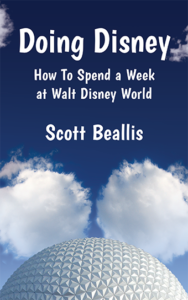As you may or may not have noticed, I have not published anything…ANYTHING…in 2016. It’s not for a lack of things to publish. I currently have four works ready to go. They are, in no particular order, ODD MAN OUT, RECIPROCAL EVIL, THE NEVER ENDING NIGHT, and finally, DEAD OR ALIVE. Most are novella-length; RECIPROCAL EVIL is a bit over 50,000 words, while ODD MAN OUT clocks in at about 33,000. I think that both DEAD OR ALIVE and THE NEVER ENDING NIGHT are around the same length: approximately 27,000 words.
I have been writing. I have a YA novel finished called THE SEVEN CITIES OF GOLD: CIBOLA which is about 53,000 words. I am about 68,000 words into an untitled end-of-the-world novel which was inspired by Hugh Howey’s WOOL. I’m working on a longer vampire novel which would follow DEAD OR ALIVE and a horror story set in a fictional town called Addison Falls. I’ve also been tinkering with a series that I started with my son a couple years ago, called THE NINE KEYS. The first of that series is basically finished, and it is something around 68,000 to 70,000 words in length. The second is about 20,000 words at this point and has a long way to go. I also started a space opera novel but that’s stalled out at around 17,000 words at the moment.
Covers are done for three of the four ready-to-go works, editing and formatting are done for all four. So what’s the holdup, you might ask (assuming that “you” are reading this and are interested in reading what I’m writing)?
I haven’t been selling much (okay, I really haven’t been selling anything!) and I need to do something different. One option is to give up. Or keep doing what I’ve been doing, which involves tossing up my writing, offering it for sale, and having no one actually find any of it.
The second option is to try to form a better foundation. So far I have only published ebooks and only at Amazon. So, my foundation is this blog/website, my Amazon author page, and my Facebook page. I have, like, 64 followers on Facebook. Not enough. And depending on Facebook to get the word out is a crapshoot. When I look at how many people view my posts on my Scott Dyson page there, often it’s like 7, or 13, or at best low 20’s. So of those 64 people, only a small percentage even SEE my notifications when I publish. Without paying FB to show the post to more people, I guess that’s about the best one can do there.
I am thinking of doing Instagram, just for my cover photos. I have thought about taking down my collections and publishing the individual works for free on Wattpad, but after looking around there, I didn’t have much luck finding a lot of stuff I wanted to read. I went specifically looking for my friend Steve Moore’s work there, and I didn’t find it with their search functions. So I wonder how effective that will be for what I write.
I try to “network” with other writers as much as possible. I will promote authors’ works (assuming they are something I like and read) here on these pages, with FB posts, and in any other way that comes up, and I have a few author-friends who have helped me out as well. But I don’t think our audiences cross over very much, or at least what I write is not necessarily of interest to their audiences. I read so broadly and across so many genres that I am happy to promote their stuff; even more, I WANT to suggest and recommend good reads to my friends. I think that maybe if I could network with some horror authors, it would work better. I have tried with a couple, but they don’t seem interested in reciprocating.
But the biggest thing I want to do is set up a mailing list. And I don’t really know how to go about it. I mean, signing up is easy. And it seems that putting the widget on the website is not a big challenge either. But most authors I’ve spoken to who use mailing lists effectively offer a free work, and all I have are mobi’s of my works. I’d certainly be willing to offer one or both of my short story collections, or even one of my novellas, for free as an incentive to sign up for the list, but as I have not used any of the software (Vellum, Sigil, Calibre) that apparently can generate ebooks in various formats, I don’t know how to get these files to give away.
As a mailing list builds, eventually you have a ready-made list of people who are interested in receiving information about your releases, and maybe, just maybe, you can sell enough books upon release to push your work into some sort of visibility on Amazon. I think that this sounds like the best way to increasing sales and visibility.
I also plan on giving away both of my short story collections (as they’re both in Amazon Kindle Select and in KU) and I want to try a FB experiment, ask some friends if they’d share the links to the free books, see if I can give away a bunch more than I usually do. Watch this page for announcements about those giveaways, or if you’re a Facebook friend, watch my feeds there.
Anyway, I’m going to try to break the paralysis in the next month or two, and get this stuff out there for anyone and everyone to read. If anyone is interested, that is…
***
 Links for purchase follow for Amazon:
Links for purchase follow for Amazon: